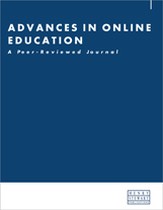How to build the future of teaching and learning while growing from the changes and challenges of 2020–21
Abstract
The challenges of the last two years that the COVID-19 pandemic directly caused or exacerbated will have long-lasting impacts on teaching and learning in higher education. The need now is to thoughtfully evaluate lessons learned and areas of growth to apply in the move forward instead of succumbing to the pressures to return to old systems. Will administrators, instructors and students choose productive and effective paths forward that will enhance learning for all? Or will they slide back into old norms out of comfort or fatigue? How do we extract positive changes from these events? There have been many conversations related to this reflection within higher education. This paper presents the early and hypothesised lasting impacts of the past two years’ events on teaching and learning organised across seven themes: course logistics, tools, activities and assessment for learning, student services and programmes, work culture, attitudes, and relationships. Each theme includes the relevant challenges, the short-term reactions and solutions and examples of continuing positive practices. The process to develop the future of teaching and learning in higher education requires reflection on the past two years and deliberate action to grow from the lessons learned to avoid the pullback to fully pre-pandemic practices.
The full article is available to subscribers to this journal (subscription is free).
Author's Biography
Mary Ellen Wiltrout has led the execution of the digital learning strategy for the Department of Biology at MIT for over eight years. As a Lecturer and Director of Online and Blended Learning Initiatives, she trains and mentors instructors, postdoctoral fellows and students, manages the digital learning projects for the department including massive open online courses (MOOCs) and blended learning experiences, and conducts research on the design of digital learning experiences. The team created three of the MOOCs on the list of the best online courses of all-time according to ClassCentral. Prior to her current position, Mary Ellen earned her PhD in biology from MIT and then taught at Harvard University. Mary Ellen’s broader roles at MIT include being a senior member of the Digital Learning Lab, an organiser of workshops on digital learning and a member of institutional committees at MIT.
Citation
Wiltrout, Mary Ellen (2022, September 1). How to build the future of teaching and learning while growing from the changes and challenges of 2020–21. In the Advances in Online Education: A Peer-Reviewed Journal, Volume 1, Issue 1. https://doi.org/10.69554/BYAI9472.Publications LLP
